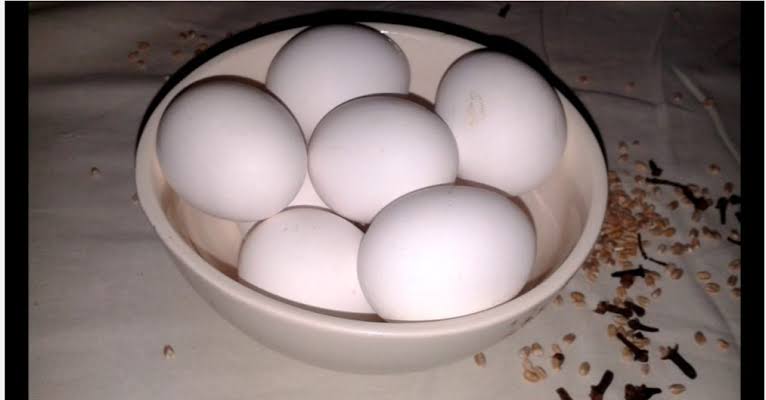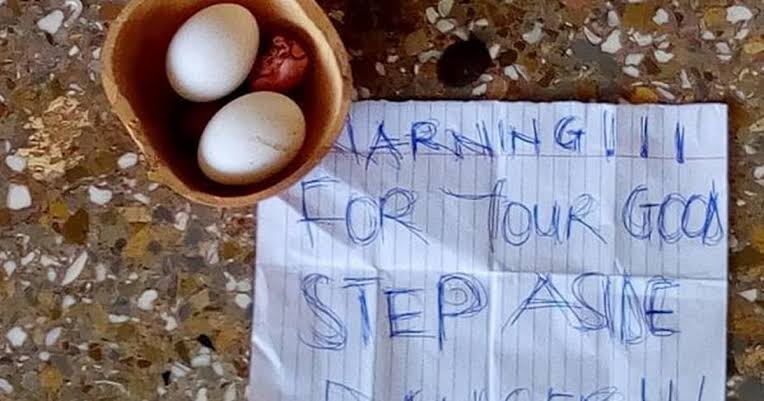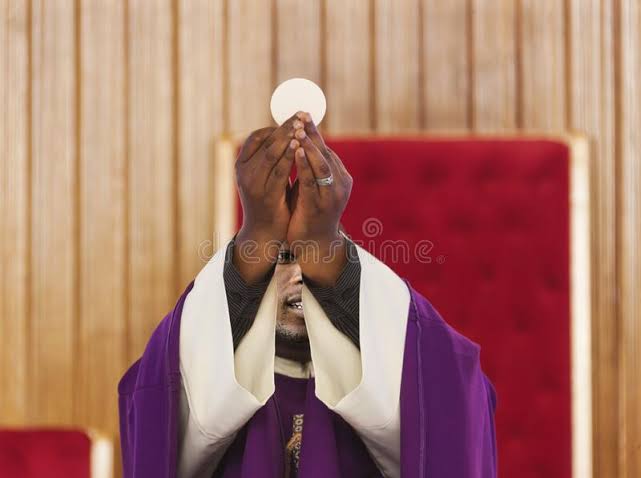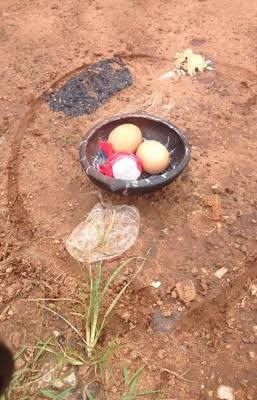Every Easter, we are assaulted with Easter Bunny and Easter Eggs. Have you bothered to ask, what is the use of eggs in Easter celebration?
Well, long before the Europeans brought their culture to Africa, Ndi Igbo were already using Eggs in worship.
The egg must be one laid by a native African fowl or bird.
But in extreme cases, where such is not readily available, you can substitute provided you first alert the deities of your inability to source for a native Egg and efforts you had made to get one.
The egg is the first stage of the life of the Igbo Fowl. The egg is known for purity and peace. That is why it is used in various sacrifices. It also has some cleansing power over devilish control. All these are why it is used in performing one Igbo traditional ceremony or the other. The uses include the following:
 (i) The Igbo egg is used in cleansing the body of a sick person with a view to neutralizing the effect of the sickness spiritually. In this case, it is rolled all over the body of the sick person.
(i) The Igbo egg is used in cleansing the body of a sick person with a view to neutralizing the effect of the sickness spiritually. In this case, it is rolled all over the body of the sick person.
In most cases, it is done with some incantations in which the person administering the cleansing prays for recovery of the sick person. He would also pray for his own health and must not fail to state that he would not take over the sickness. In some cases the egg is used in encircling four times on the head of the sick person.
The four times signify the Igbo four market days on which the sick person is hoped to be healthy as the sickness will fizzle away in faeces and urine.
The egg so used could be placed on the road or thrown down on the road to break.
The person that carried out this sacrifice may be charged with not looking backwards as well as not talking to anybody until he or she reaches home.
 (ii) Another thing the Igbo egg does is alleviating anger. When somebody is known to have missed a certain thing in life, his heart is expected to be full of anger. Such person’s heart is cleansed of such anger so that in his reincarnation, he would not suffer the same ill fate.
(ii) Another thing the Igbo egg does is alleviating anger. When somebody is known to have missed a certain thing in life, his heart is expected to be full of anger. Such person’s heart is cleansed of such anger so that in his reincarnation, he would not suffer the same ill fate.
The ill fate might be childlessness (especially, male issues), peasantry, long-time ill health, premature death, positions etc. The egg might be thrown down on the grave of the unfortunate person to break away as it is done in Amansea, Awka North Local Government Area of Anambra Nigeria. Or the egg could be placed on the chest of the person before the coffin is covered as is the case in Uzo Uwani Local Government Area of Enugu State Nigeria Isaac Amalunweze told this researcher in a discussion, that if a certain great Nigerian politician that sought to rule Nigeria by all means and yet failed had hailed from his Uzo Uwani Local Government Area, they would place an egg on his chest before placing the lid his coffin and burying him (Personal Communication 4th April 1988).
The alleviation of anger can pertain to deities. The deities that are destroyed in religious riots are normally angry.
Their anger is alleviated by rolling the Igbo egg over their shrines. This is done in the course of normalizing the relationship of such deities with the people that worship them.
(iii) It could be used in cleansing abomination from somebody who jumped into a grave, whether fully dug or being dug. The person is said to have chosen death. It looks funny but some people do jump into the grave being dug in their course of demonstrating the bitterness such death had evoked in them. In such cases, the traditional priest sets them free from death by encircling their legs with egg and other items.
The egg and other items are thrown into the grave with the trunk of a plantain and buried before a new grave is dug. Another way of cleansing abomination is to roll the egg over the eyes of somebody that saw an abominable episode. An example is the eyes of somebody that saw a person that hanged himself.
The sight is an abomination. It is believed that the sight should be cleansed off otherwise it will live with that person and can instigate him or her to commit suicide by hanging.
An example is the body of Okonkwo who hanged himself in Things Fall Apart. Achebe (1958) did not state that the sight of his hanged body is sacrilegious, but he stated that his kinsmen could not touch his body let alone burying him: It is against our custom, said none of the men.
It is an abomination for a man to take his own life. It is an offence against the Earth, and a man who commits it will not be buried by his clansmen.
His body is evil, and only strangers may touch it. That is why we ask your people to bring him down, because you are strangers (p.186).
 iv. It is used in issuing notices to deities. The Agbaja Abatete Community Association that has its national headquarters at Nkwo Agbaja Square, Abatete, demanded that the chief priest of Nkwo should cut down some tree branches inside which hoodlums hide to waylay people.
iv. It is used in issuing notices to deities. The Agbaja Abatete Community Association that has its national headquarters at Nkwo Agbaja Square, Abatete, demanded that the chief priest of Nkwo should cut down some tree branches inside which hoodlums hide to waylay people.
The chief priest that included two eggs and two chickens in the items required for some ritual sacrifices before the cutting down of the branches, explained to the researcher that he would use both the eggs and the chickens in cleansing the shrine before notifying the deity of the ritual sacrifices that would be carried out in future.
According to him, it was during the ritual sacrifice of the deity that he would request the permission of the deity for cutting down of the branches.
The eggs and chickens are used in cleansing although chickens are greater in quality (Ezenkwo, Personal Communication 1st August, 2010).
Culled from; Igbo Fowl’s Wellerism and the Concensus of other Animals: the Issue of Literature Begetting Culture By I. Okodo https://www.ajol.info/index.php/jrhr/article/download/87344/77059




